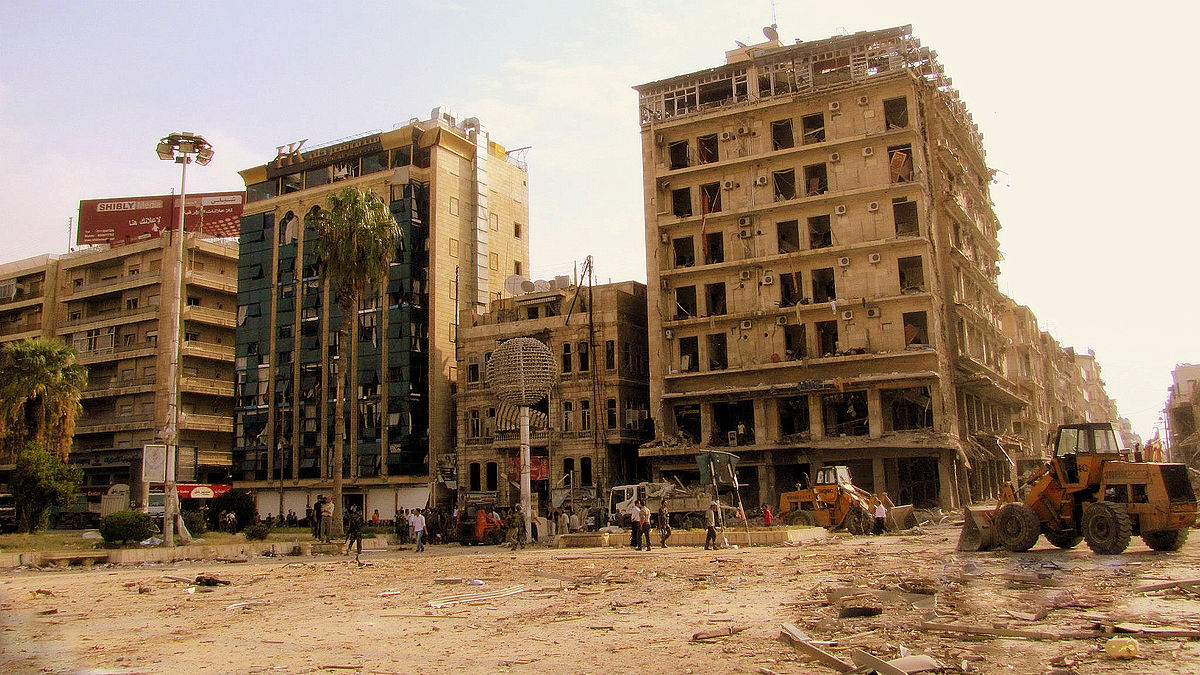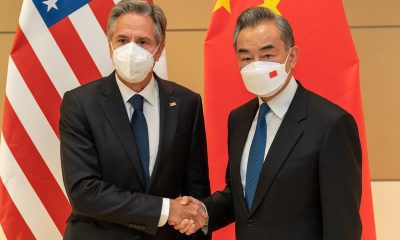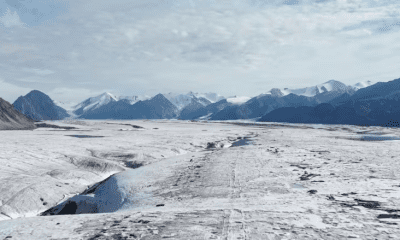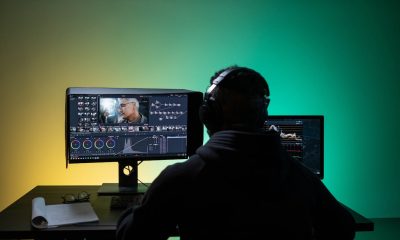Headline
Al Qaida fighters along Israel’s border in Golan Heights give Israelis new cause for concern

Three suicide car bombs exploded at the eastern corner of the central Saadallah Al-Jabiri Square killing 48 people. Al-Nusra claimed responsibility for the attack. Photo by Zyzzzzzy / Flickr.
For the first time in the Syrian civil war, al-Qaida fighters are hunkered down on Israel’s doorstep, and Israelis in the lush, hilly Golan Heights who have long considered Syrian President Bashar Assad their bitter foe are now worried about something more ominous—that they could become the militants’ next target.
The push into the Golan by the Nusra Front, as al-Qaida’s branch in Syria is known, comes just two weeks after Israel ended a 50-day war against Hamas on its southern border with the Gaza Strip, giving the conflict-weary nation another cause for concern.
Israelis in the Golan have grown accustomed to hearing the sound of distant battles between rival forces in Syria’s civil war.
But last week’s seizure of the strategic Quneitra border crossing by the Nusra Front fighters who expelled Assad’s forces from the area—and abducted 45 U.N. peacekeepers in the process—has created an unprecedented situation that has brought the extremists to within just a few meters (yards) of Israeli positions.
The Syrian government is “not our cup of tea,” said Gabi Kuniel, an Israeli who tends vineyards recently damaged by mortar shells when the violence spilled over to the Israeli-held side of the border in the Golan.
But “we prefer that the Syrian army controls this region and not a group of radical al-Qaida Muslim people,” he said Wednesday, sitting behind a concrete structure near his fields to stay out of the line of fire.
As he spoke, a plume of smoke rose from the Syrian side of the border fence, and heavy machine-gunfire could be heard in the distance.
For the past three years, Israelis in the Golan have had a relatively safe front seat view of the civil war as Syrian government forces battled rebels attempting to wrest control of the strategic area between Israel and Syria.
But now the Nusra Front fighters are the new bosses there, moving around in camouflaged trucks and on foot with guns slung over their shoulders, in some cases just 50 metres (yards) away from Israeli military outposts and Israeli farmers’ fields. Some Israelis are convinced it’s a matter of time before the Islamic radicals set their sights on them, believing that attacking the Jewish state is part of their ideology.
“They’ll come at us in the end, I have no doubt,” said Yehiel Gadis, 56, peering through a small pair of binoculars at an Israeli lookout point across from Syria’s Quneitra crossing.
“The entire Arab world is furious with us,” said his friend, Yigal Bashan, 57.
The two men, who live in central Israel, were on a sightseeing trip in the region and were among some two dozen curiosity seekers who stopped at the lookout.
Israel captured the Golan, a strategic plateau overlooking northern Israel, in the 1967 Mideast war from Syria. It later annexed the area, a move that has never been recognized internationally. Since the aftermath of the subsequent 1973 war, U.N. monitors have helped to enforce a stable truce and the area has been tense but generally quiet.
That started to change when the Syrian conflict erupted in March 2011.
Israel has largely stayed on the sidelines of the war next door, quietly content to watch Assad’s forces battle to a stalemate against the various rebel groups trying to oust him. However, Israel has occasionally responded to mortar fire that spilled over the border, usually unintentionally, and is believed to have carried out several airstrikes on weapons shipments thought to be bound for Hezbollah militants in Lebanon.
As the Nusra Front took over the border area last Wednesday, the Israeli army ordered Kuniel’s 200 farmhands out of the fields for three days, forcing them to leave behind freshly picked fruit in vats to rot.
Then, mortar shells fell near the village of Merom Golan, setting large swaths of Kuniel’s vineyards ablaze. The fires reduced some of Kuniel’s vines to a crisp, giving a smoky taste to what remained of his plump grapes.
Those grapes were destined for some of the Golan Heights Winery’s higher-end Chardonnay, Sauvignon Blanc and Pinot Noir bottlings, he said. Now they can be used only for cheaper wines—amounting to about $200,000 worth of damage, he estimated.
Israeli officials believe the Syrian rebels’ sights are set—at least for now—on battles within Syria, not on Israel. Nevertheless, the Nusra Front poses an unprecedented threat.
Oviv Oreg, former head of the al-Qaida desk on the Israeli National Security Council, said the Nusra Front sees Israel as a “legitimate target.” He said that while the group is preoccupied with the fighting inside Syria, it is just a matter of time before it tries to strike Israel, since its fighters now “have direct access.”
The Quneitra crossing was an important victory for the Nusra Front. It was the Syrian army’s last stronghold in the Golan Heights and sits at the tip of the main access road to Damascus, the Syrian capital and the regime’s headquarters.
The crossing also has symbolic significance, serving as the only portal to Israeli-held territory between enemy countries. While mostly closed, it opens to allow U.N. peacekeepers, Red Cross workers and Druse university students to cross back and forth.
Israeli defence officials estimate that a few thousand Syrian rebels are now positioned along the border in the Golan, with a few hundred in the Quneitra area, including the Nusra fighters.
When the rebels seized the crossing, they captured 45 U.N. peacekeepers from Fiji and trapped about 80 others from the Philippines. The Filipino troops later fled to safety, while the Fijians remain in rebel captivity. The Philippines has since announced it will be withdrawing its troops from the U.N. peacekeeping force, known as UNDOF.
Stephane Cohen, a former Israeli military liaison with UNDOF, said the peacekeeping force is rapidly collapsing and can no longer serve its purpose of enforcing a truce between Israel and Syria. He said that as more countries pull out of the force, it is unlikely other armies will want to contribute troops in such an uncertain security environment.
The loss of UNDOF would be a blow to Israel and leave Israelis alone “in front of al-Qaida,” Cohen said. It would also undermine regional stability, he added, since the force has provided an important outlet for Israel and Syria to air their grievances.
“In Syria there are no good guys and bad guys,” said Uzi Dayan, a former deputy military chief of staff. “There are bad guys, very bad guys and extremely bad guys.”
Associated Press writer Alon Bernstein contributed to this report from Jerusalem.





















